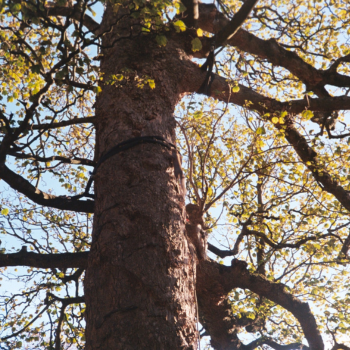Hear from Year 4 and 5 MBChB students, Ellie and Amy as they delve into the world of planetary health, driven by a shared passion for sustainability.
Ellie, and myself, Amy, both have a background interest in planetary health and sustainability. So, when we heard about the Planetary Health Report Card, we were keen to turn our interests into something tangible. Completing the report card in tandem with universities around the world has given us the opportunity to become part of a global movement that seeks justice for both people and the planet. We have been grateful to work alongside 21 other medical students here at Edinburgh Medical School, as well as our predecessor Dr. Joey Brooke and supervisor Dr Jeni Harden, which has allowed us to create a planetary health community at a more local level.
So, what is the Planetary Health Report Card (PHRC) and how does Edinburgh Medical School measure up?
The PHRC is a needs assessment tool that investigates how well the medical school and University teach planetary health and endorse a culture of sustainability.
The University of Edinburgh is ranked first in Europe and fourth in the world for sustainability so it has been inspiring to explore the variety of ways in which the University endorses sustainability. These have ranged from carrying out world-renowned research to a variety of support for student-led initiatives. We thoroughly examined the medical school’s curriculum to discover highlights as well as downfalls.
The shining star is the “SEAM Unit 2: Health, Medicine, and Environment”, an innovative module that introduces second year students to current planetary health issues. However, it would be great to see the medical school join the wider conversation surrounding climate change which seeks to explore social justice through centralisation of marginalised voices such as indigenous peoples. Meanwhile, incorporating practical tools that teach medical students how and when to use their voices to advocate for sustainability would help turn theory into practice.
Want to get involved?
For medical students wanting to learn more about planetary health, we would greatly encourage you to take advantage of the wider University resources, for example, becoming a Sustainability Champion which allows you to join a network of students who help inform sustainable decision-making within the University.
We would also love to see StudentMedAID back up and running so if anyone was interested in resurrecting a society, this would be their chance. Alternatively, students could join one of the many pre-existing student-run organisations within the University.
Sustainability is something that brings together students from all different backgrounds so getting involved is a great way to meet non-medic friends too!
As for our next steps we were delighted to be invited to the Medical Education Forum on the Thursday 14 March to share the findings of our report.
We hope this invitation is the first of many opportunities to work alongside the Medical School to improve planetary health teaching.



